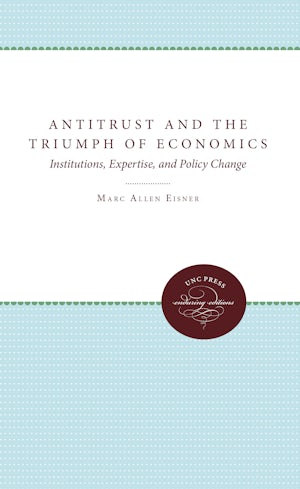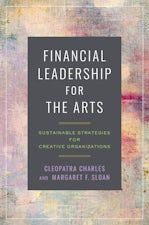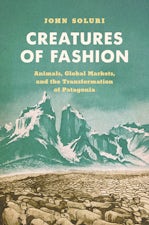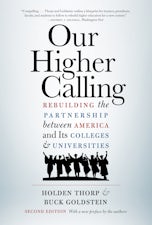Antitrust and the Triumph of Economics
Institutions, Expertise, and Policy Change
By Marc Allen Eisner
320 pp., 5.5 x 9
-
Paperback ISBN: 978-0-8078-6534-7
Published: May 2010 -
E-book EPUB ISBN: 978-1-4696-3977-2
Published: November 2017 -
E-book PDF ISBN: 979-8-8908-6515-1
Published: November 2017
Buy this Book
- Paperback $50.00
- E-Book $29.99
During their early years, the Antitrust Division and the FTC gave little attention to economic analysis. In the period following World War II, however, economic analysis assumed an increasingly important role in both agencies, and economists rose in status from being members of support staff to being pivotal decision makers who, in effect, shaped the policies for which elected officials were generally assumed to be responsible.
In the 1960s and 1970s, critical shifts in prevailing economic theory within the academic community were transmitted into the agencies. This had a profound effect on how antitrust was conceptualized in the federal government. Thus, when Ronald Reagan became president in 1981, the antitrust agencies were already pursuing a conservative enforcement program.
Eisner's study challenges dominant explanations of policy change through a focus on institutional evolution. It has important implications for current debates on the state, professionalization, and the delegation of authority.
Originally published in 1991.
A UNC Press Enduring Edition -- UNC Press Enduring Editions use the latest in digital technology to make available again books from our distinguished backlist that were previously out of print. These editions are published unaltered from the original, and are presented in affordable paperback formats, bringing readers both historical and cultural value.
Reviews
"An admirably thorough and perceptive account of the development of antitrust policy. Pointing out the limitations of current theories of regulatory politics, it not only demonstrates the crucial influence of analysts and professionals, but shows how that influence makes public policy hostage to the moods and fashions of academe. It will become a standard citation in literature on antitrust, regulatory politics, and professionalism."--Paul J. Quirk, University of Illinois, Institute of Government and Public Affairs
"Solidly contributes to the political- institutional approach to policy-making. . . . [Eisner] provides excellent descriptive overviews of change in the law, policy, and institutions of antitrust and of the content of relevant economic expertise."--American Journal of Sociology




